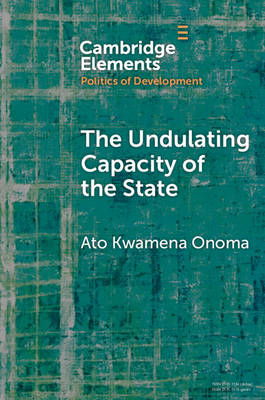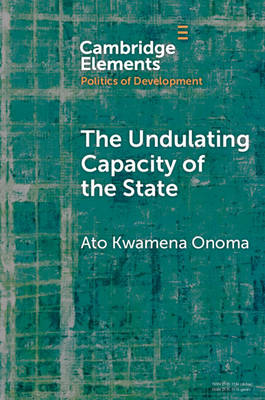
- Afhalen na 1 uur in een winkel met voorraad
- Gratis thuislevering in België vanaf € 30
- Ruim aanbod met 7 miljoen producten
- Afhalen na 1 uur in een winkel met voorraad
- Gratis thuislevering in België vanaf € 30
- Ruim aanbod met 7 miljoen producten
Zoeken
The Undulating Capacity of the State
Autochthony and Infrastructure Development in African Cities
Ato Kwamena Onoma
€ 24,45
+ 48 punten
Uitvoering
Omschrijving
This Element weaves together literatures on autochthony and belonging and on African urbanism to shed new light on the ability of the African state to undertake development interventions in some of the most important urban centers on the continent. It explains variations in levels of trust in the African state that shape neighborhoods' responses to states' development interventions. Focusing on the Senegalese state's construction of the VDN 2 highway on the outskirts of the capital, Dakar, the author argues that in major African cities with colonial origins, whether neighborhoods project themselves as 'autochthonous' or 'migrant' communities shapes general attitudes toward the state and influences the capacity of the state to carry out development interventions in these areas. In these cities, states are more likely to successfully intervene in neighborhoods dominated by 'new' migrants to the city than in those neighborhoods that portray themselves as 'autochthones' of these cities.
Specificaties
Betrokkenen
- Auteur(s):
- Uitgeverij:
Inhoud
- Aantal bladzijden:
- 86
- Taal:
- Engels
- Reeks:
Eigenschappen
- Productcode (EAN):
- 9781009698399
- Verschijningsdatum:
- 4/09/2025
- Uitvoering:
- Paperback
- Formaat:
- Trade paperback (VS)
- Afmetingen:
- 152 mm x 229 mm
- Gewicht:
- 127 g

Alleen bij Standaard Boekhandel
+ 48 punten op je klantenkaart van Standaard Boekhandel
Beoordelingen
We publiceren alleen reviews die voldoen aan de voorwaarden voor reviews. Bekijk onze voorwaarden voor reviews.








